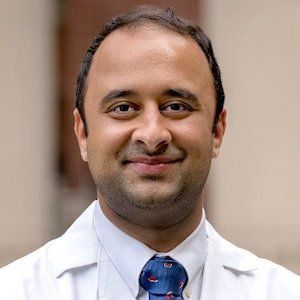Article
Experts' Perspective: Top Cardiology News from ACC 23
Author(s):
With ACC 2023 in the rearview, the HCPLive editorial team compiled perspectives on the meeting’s top piece of news from half a dozen clinicians specializing in various subspecialties across the spectrum of cardiovascular care.
The American College of Cardiology’s (ACC) 2023 Annual Scientific Session Together With the World Congress of Cardiology served as a showcase of the latest advancements in cardiovascular medicine. With more than 16,000 attendees, the annual meeting boasted dozens of pieces of featured research in addition to the more than 20 late-breaking presentations included in the meeting, with this research touching on multiple areas of care ranging from lipid management to heart failure to structural heart disease and implementation science.
For many specialties, this sheer amount of potentially practice-changing data could be seen as overwhelming. For cardiology, with such an array of subspecialties and roles on the cardiovascular care team, this is just enough to scratch the surface. With ACC 2023 in the rearview, the HCPLive editorial team compiled perspectives on the meeting’s top piece of news from half a dozen clinicians specializing in various subspecialties across the spectrum of cardiovascular care and at different points in their careers, from program directors to a research fellow, to celebrate the breadth of data presented at the meeting.
HCPLive: When looking back at ACC 2023 in 5 years, what do you think will stand out as the most important data to be presented at the ACC’s 72nd Annual Scientific Sessions?
Deepak Bhatt, MD, MPH
Courtesy: Mount Sinai

Deepak Bhatt, MD, MPH, Dr. Valentin Fuster Professor of Cardiovascular Medicine and director of Mount Sinai Heart: There is a lot of good data at the conference, but since you asked for just one, I'll answer the question unlike many others who list multiple things. I think Dr. Ridker's presentation on a pooled analysis from the PROMINENT, REDUCE-IT, and STRENGTH trials was the most interesting. The analysis focused on residual inflammatory risk, which is a well-known concept, but Dr. Ridker examined the residual risk attributed to inflammation, which was a very clever analysis. Dr. Pradhan contributed data from PROMINENT, Dr. Nissen from STRENGTH, and I contributed from REDUCE-IT. Dr. Ridker found that there is a substantial risk attributable to inflammation even if cholesterol is well controlled with good statin therapy, indicating a need for therapies directed towards inflammation to reduce cardiovascular event rates. Ongoing trials will shed more light on this, but this analysis bodes well for that series of trials.
Viet Le, PA-C
Courtesy: Intermountain Healthcare

Viet Le, PA-C, associate professor of research at Intermountain Healthcare and president of the Academy of Physician Associates in Cardiology: ACC 23 has been an interesting conference because of the late-breaking trials, but what's particularly noteworthy is the new cardiovascular outcome trial for bempedoic acid, a lipid-lowering medication. This is helpful because we're recognizing that statin intolerance is a bigger problem than we want to admit in the cardiovascular space. We need therapies that lower lipids, and the evidence shows that bempedoic acid is another tool in our armamentarium to combat atherosclerosis. By lowering LDL through this mechanism, it translates to risk reduction in individuals. Looking back, this trial solidifies bempedoic acid as a new way to lower coronary risk.
Robert Harrington, MD
Courtesy: American Heart Association

Robert Harrington, MD, Arthur L. Bloomfield Professor of Medicine at Stanford University: What has impressed me the most is simply being here in person. Although we were together at the Heart Association meeting in November and the European Society meeting over the summer, it's fantastic to be back. Additionally, the opportunity to have those spontaneous conversations in the hallways has been invaluable. I found the bempedoic study, which explored alternative therapies for statin-intolerant patients or those unwilling to take statins, to be particularly interesting. It provides another tool in the toolbox for patients with high LDL and high atherosclerotic risk who are unable to take the proven therapy, which is statin. Combining this new agent with drugs like ezetimibe to further lower LDL is a significant development. So, that was the most exciting thing I saw.
Ankeet Bhatt, MD, MBA
Courtesy: Twitter

Ankeet Bhatt, MD, MBA, cardiologist and research scientist at Kaiser Permanente: Implementation science has definitely been a major focus of this conference, and we saw it in action during this morning's presentations, particularly the BETTER CARE-HF study. It employed various strategies to encourage prescriptions of mineralocorticoid antagonists, which was impressive. I was also intrigued by the NUDGE FLU trial. While the effect sizes were small, the ability to scale it rapidly across a large population was fascinating. We're developing a range of implementation opportunities that span from easy and inexpensive but with smaller effect sizes, to more challenging and resource-intensive but with larger effect sizes. As we build this continuum, it's an exciting time for implementation science and cardiometabolic medicine. Health systems can choose the strategies that are feasible within their system and for the desired effect sizes.
Gregg Stone, MD
Courtesy: American College of Cardiology

Gregg Stone, MD, professor of medicine and director of Academic Affairs at Mount Sinai Heart: There's been a lot of important news coming out of this meeting, but what fascinated me the most were the results of the TRILUMINATE trial. This trial focused on patients with severe tricuspid regurgitation who were randomized to treatment with a try clip, a mitral clip revised for the tricuspid valve, versus medical therapy alone. Unlike the COAPT trial, which showed improved heart failure outcomes after one year, the TRILUMINATE trial didn't demonstrate a difference in heart failure hospitalization, mortality, or exercise tolerance. This suggests that while tricuspid regurgitation can cause patients to feel miserable and has been linked to mortality in observational studies, fixing it with a TriClip may not prevent hospitalization for severe heart failure caused by the left side, nor prolong survival. However, it was a positive that patients felt better, and we continue to search for ways to improve their quality of life.
There was also positive data regarding bempedoic acid, another modest LDL-lowering agent that significantly reduced major adverse cardiovascular events. The renovate study showed that intravascular imaging with either IVIS or OCT can reduce target vessel failure by about 36%, which is consistent with findings from other intravascular imaging studies. This emphasizes the importance of doing PCI with intravascular imaging guidance in the vast majority of cases.
Safia Chatur, MD
Courtesy: Twitter

Safia Chatur, MD, research fellow at Brigham and Women’s Hospital: This is an exciting time in cardiology, particularly for heart failure. Despite the expanding indications for drugs with robust clinical trial evidence bases and supportive clinical care guidelines that are widely disseminated, there remains a persistent evidence-practice gap. The important next frontier is to implement heart failure goal-directed medical therapy and cardiovascular care in general, in an effective, scalable, and equitable way. I was thrilled to see implementation trials at the ACC, such as IMPLEMENT-HF, NUDGE FLU, and BETTER CARE-HF, which aimed to prospectively test these strategies in this space. Understanding how to leverage digital solutions, learning health systems, and the principles of implementation science and behavioral economics is crucial to generating evidence on how to best close that gap.
Editor’s note: These transcripts have been edited for clarity.





